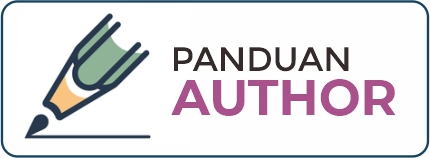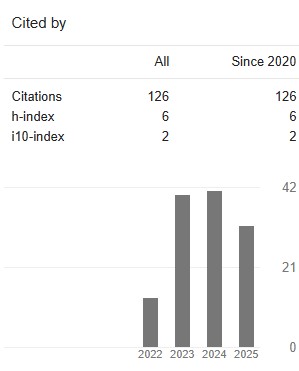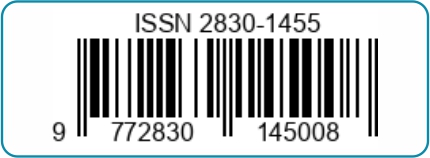Mekanisme Pembiayaan Syariah pada Baitul Māl wat Tamwīl (BMT) Amanah Kota Buton Tengah dalam Tinjauan Fikih Muamalah
Sharia Financing Mechanism at the Baitul Māl wat Tamwīl (BMT) Amanah of Central Buton City in Review of Muamalah Fiqh
DOI:
https://doi.org/10.36701/al-khiyar.v3i2.1050Keywords:
mechanism, Baitul Mal wat Tamwil, Fiqh Muamlah, financingAbstract
This study aims to find out and understand the mechanism of sharia financing at the Baitul Māl wat Tamwīl (BMT) Amanah, Central Buton City in a review of muamalah fiqh. This research uses descriptive qualitative field research, using normative and sociological approaches. The research results found as follows; first, the sharia financing mechanism for BMT Amanah, namely; members must follow established procedures, such as; (1). The customer comes directly to the BMT office to submit a financing application, (2). The customer must include requirements such as a photocopy of husband and wife's KTP, family card, marriage certificate, and guarantee letter, (3). Files go to BMT, (4). Conducted surveys. Then the BMT conducts a survey analysis meeting, conducts contracts, disburses funds, conducts coaching (if deemed necessary by the customer) and confiscation of collateral if the customer is unable to pay his installment obligations and is in disagreement with the agreement of both parties. Second, the financing mechanism at BMT Amanah, when viewed from the fiqh muamalah, most of the mechanisms are appropriate because the pillars and conditions for the validity of the contract have been fulfilled. With an agreement between BMT Amanah and the customer and witnessed by witnesses from BMT and each party to carry out obligations according to the agreement. But the principle in the practice of bai' biṡaman ājil is that there are things that are not fully in accordance with the fiqh principles of muamalah, namely in the first model, the goods are not handed over to the BMT, but the goods are taken directly by the customer without first being handed over to the BMT. The implication of this research is that BMT Amanah should be more active in disseminating its products to the public, so that people are more familiar with BMT Amanah and are then interested in becoming its members.
Downloads
References
Afnan Solekha dkk, Yasmin. “Baitul Mal Wa Tamwil Sebgai Lembaga Keuangan Mikro Syariah Pemberdayaan Ekonomi Umat (Konsep Dan Teori).” Velocity 1, no. 1 (2021): 48.
Ascarya. Akad Dan Produk Bank Syariah: Konsep Dan Praktek Di Beberapa Negara. Jakarta: Rajawali Pers, 2006.
Bisri dkk, Muhammad. “Qardul Hasan Dalam Perspektif Hukum Islam Pada Baitul Mal Wat Tamwil (BMT) Dan Impelementasinya.” At Taajir 1, no. 1 (2019).
Bukhari, Abu Abdillah Muhammad ibn Ismail Al. Shahih Al- Bukhari. Beirut: Dar Ibnu Katsir, 2002.
Haryoso, Lukman. “Penerapan Prinsip Pembiayaan Syariah (Murabahah) Pada BMT Bina Usaha Di Kabupaten Semarang.” Jurnal Law and Justice 2, no. 1 (2017): 79–89.
———. “Penerapan Prinsip Pembiayaan Syariah (Murabahah) Pada BMT Bina Usaha Di Kabupaten Semarang.” Law and Justice 2, no. 1 (2017).
Hendra Permana dkk, Sony. “Strategi Pengembangan Baitul Mal Wat Tamwil Sebagai Sumber Pembiayaan Alternatif Bagi Usaha Mikro.” Kajian 2, no. 24 (2001): 104.
Huda dkk, Nurul. Baitul Mal Wat Tamwil. Jakarta: Amzah, 2016.
Ilyas, Rahmat. “Konsep Pembiayaan Dalam Perbankan Syariah.” Penelitian 9, no. 1 (2015): 186.
Jamila, Nur. “Penerapan Prinsip Pembiayaan Murabahah Pada Koperasi Jasa Keuangan Syariah (Studi Kasus BMT Mandiri Abadi Syariah).” Fak. Agama Islam Muhammadiyah Sumatra Utara, 2018.
Jazairi, Abu Bakar Jabir Al. Minhajul Muslim. Mesir: Darussalam, 1964.
Latif Ilham Nasution, Muhammad. Manajemen Pembiayaan Bank Syariah. Medan: FEBI UIN-Su Press, 2018.
Lughah al Arabiyyah bi al Qahirah, Majmu’ah Al. Al Mu’jam Al Wasith. Kairo: Dar al dakwah, 2010.
Mursid, Fadillah. Kebijakan Regulasi Baitul Mal Wat Tamwil (BMT) Di Indonesia. Bandung: Media Sains Indonesia, 2021.
Nurdiansyah dkk, Rifqi. “Pelaksanaan Akad Bai’ Bisaman ’Ajil Dalam Tinjauan Hukum Islam (Studi Kasus BMT Sidogiri).” Islamic Banking and Finance 4, no. 2 (2021): 330.
Nurhadi. “Peran Produk Rahn Dalam Meningkatkan Pendapatan Anggota Di Koperasi Simpan Pinjam Dan Pembiayaan Syariah Baitul Mal Wt Tamwil Perekonomian Tasyrikah Agung Tulungagung.” Fak. Ekonomi dan Bisnis Islam IAIN Tulungagung, 2018.
Republik Indonesia, Menteri Koperasi Usaha Kecil dan Menengah. “Peraturan Menteri Koperasi Dan Usaha Kecil Dan Menengah Republik Indonesia,” 2018.
Rizal Satria dkk, Muhammad. “Analisis Perbandingan Pemberian Kredit Kepemilikan Rumah (KPR) Pada Bank Konvensional Dengan Pembiayaan Murabahah (KPR) Pada Bank Syariah.” Ekonomi Dan Keuangan 2, no. 1 (2018): 109.
Sabiq, Sayyid. Fiqih Sunnah. Beirut: Dar al Kitab al Arabiy, 1977.
Sugianto. “Pengembangan Baitul Mal Wat Tamwil Untuk Perberdayaan Ekonomi Umat.” Pendidikan Dan Konseling 4, no. 4 (2022): 2178.
Suriyana. “Pengelolaan Baitul Mal Wat Tamwil (BMT) As’adiyah Sengkang Kabupaten Wajo Dalam Perspektif Hukum Islam.” Fak. Syariah dan Hukum Universitas Alauddin Makassar, 2017.
Surya Siregar dkk, Hariman. Fikih Muamalah Teori Dan Implementasinya. Bandung: PT Remaja Rosdakarya, 2019.
Syariah, Otoritas Jasa Keuangan Ekonomi. “No Title.” Laporan Perkembangan Keuangan Syariah Indonesia, 2021, 9.
Ulpah, Mariya. “Konsep Pembiayaan Dalam Perbankan Syariah.” Jurnal Madani 3, no. 2 (2020): 149–50.
Zuhaili, Wahbah Al. Muamalah Al Maliyah Al Mu’asirah. Damaskus: Dar al Fikr, 2002.













